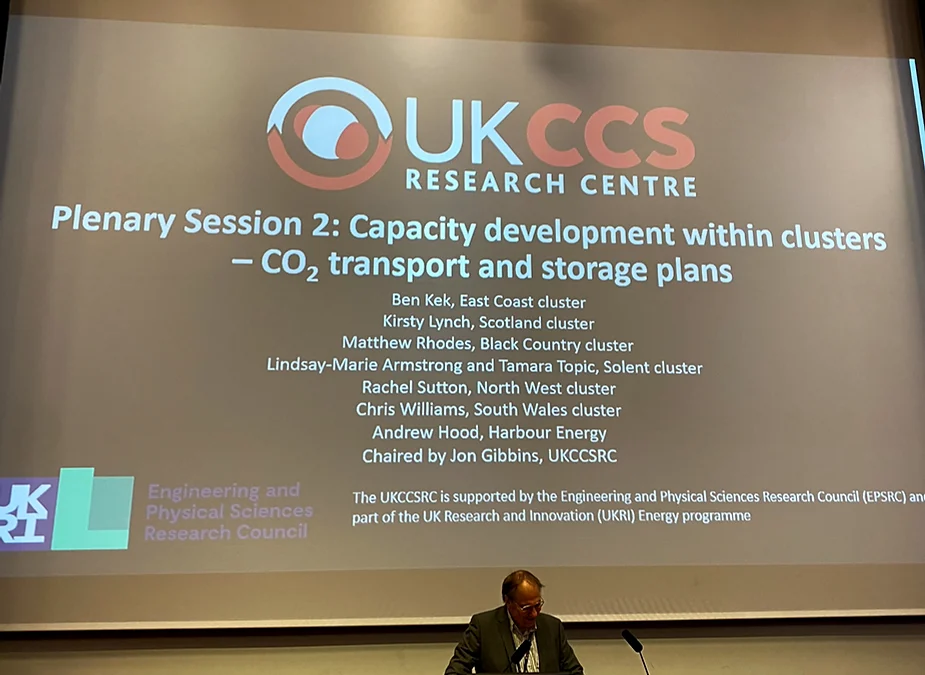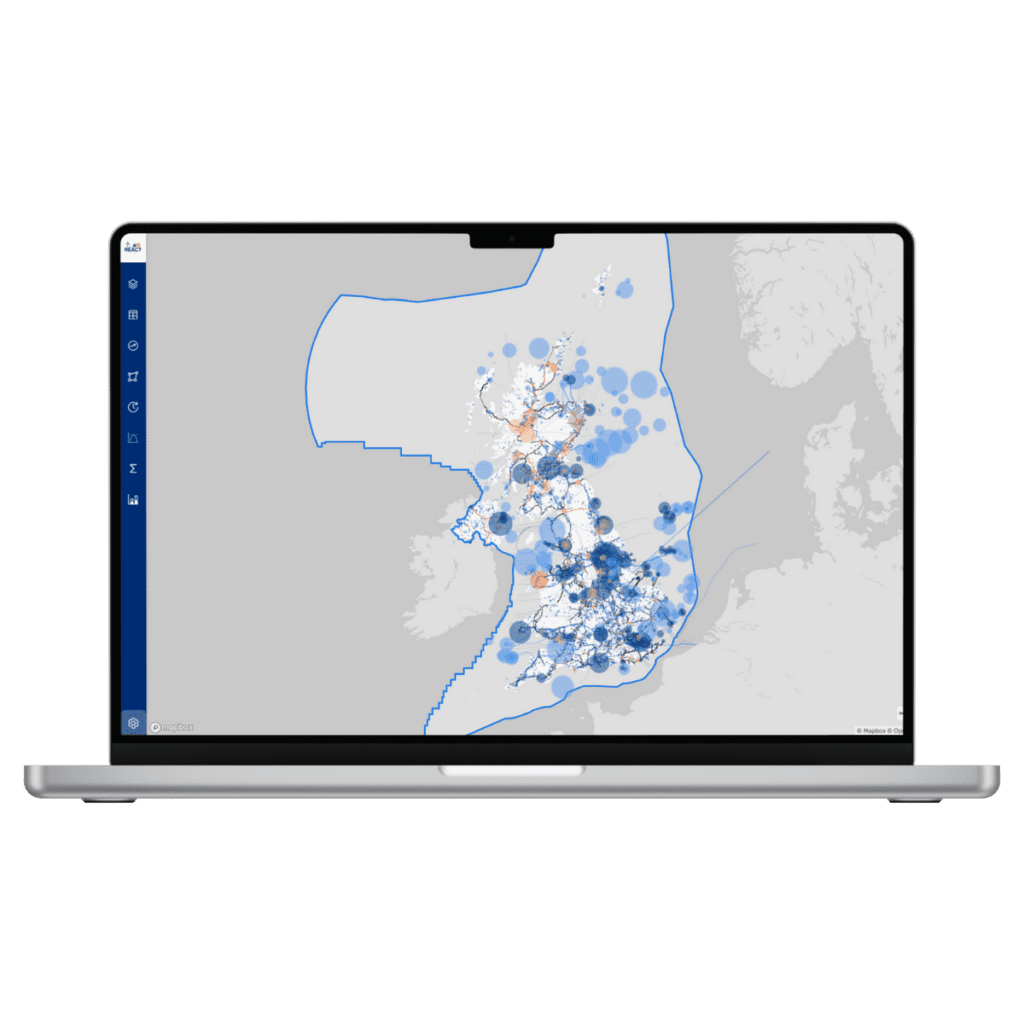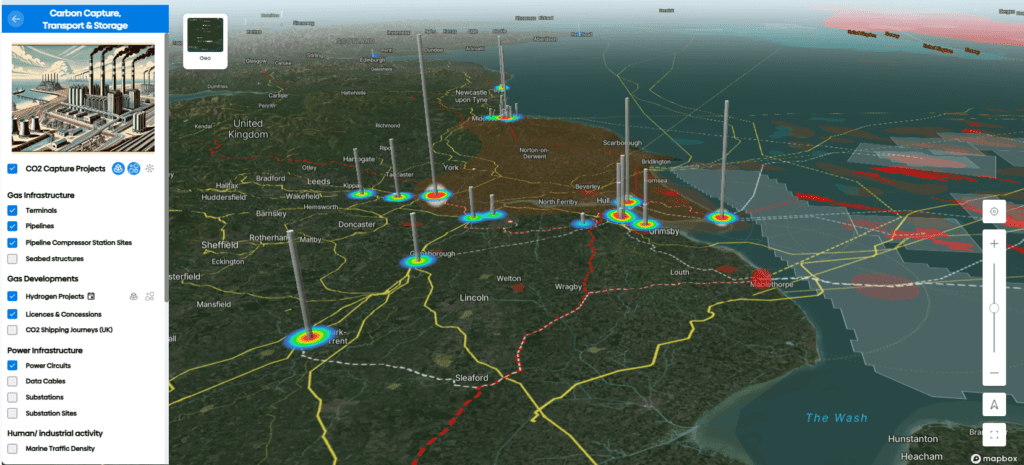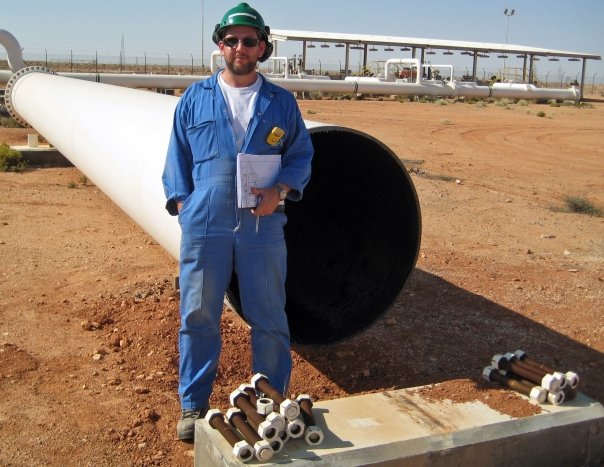Last week I attended the UK Carbon Capture & Storage’s Research Centre (UKCCSRC) Spring Conference. Trying to ‘make sense’ of UK CCS is something that we’ve been working on for a few months, but had limited background context on – so I was keen to understand some details + views on how various development options + plans are shaping up, and what the characters knowledgeable in this area REALLY talk about (after a glass of wine).
The event was superbly organised, expertly delivered and I was so glad I made the effort to go along straight after the Easter break.

UKCCSRC Plenary Session 2: Capacity development within clusters
First Impressions of Up North
I’d been to Sheffield only once before. In 1991 when I was weighing up similar-sounding and similar-looking grey chemical engineering departments. All I remember from a fleeting 24 hours in Sheffield was something about a ski slope, and some lecturer reciting a poem about Huddersfield / ‘udders feeled’ (or was that Bradford perhaps? not sure)..
Nobody had prepared me for how cool and vibrant Sheffield is though. As soon as I got off the train – and as I walked through the city streets – I passed all sorts of funky-looking street art, sculptures, bars + eateries, and university buildings everywhere. How come I didn’t know this before?
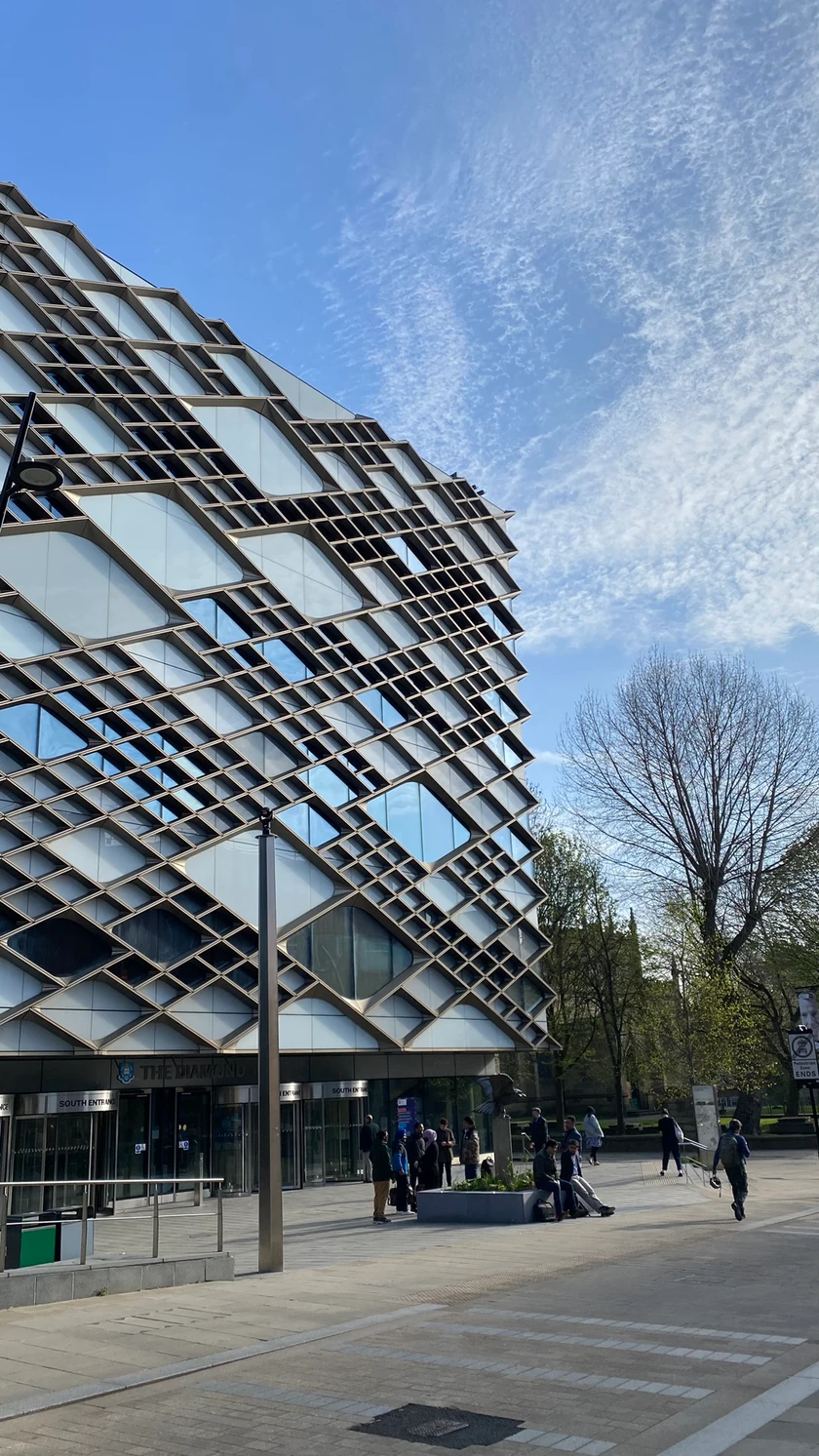
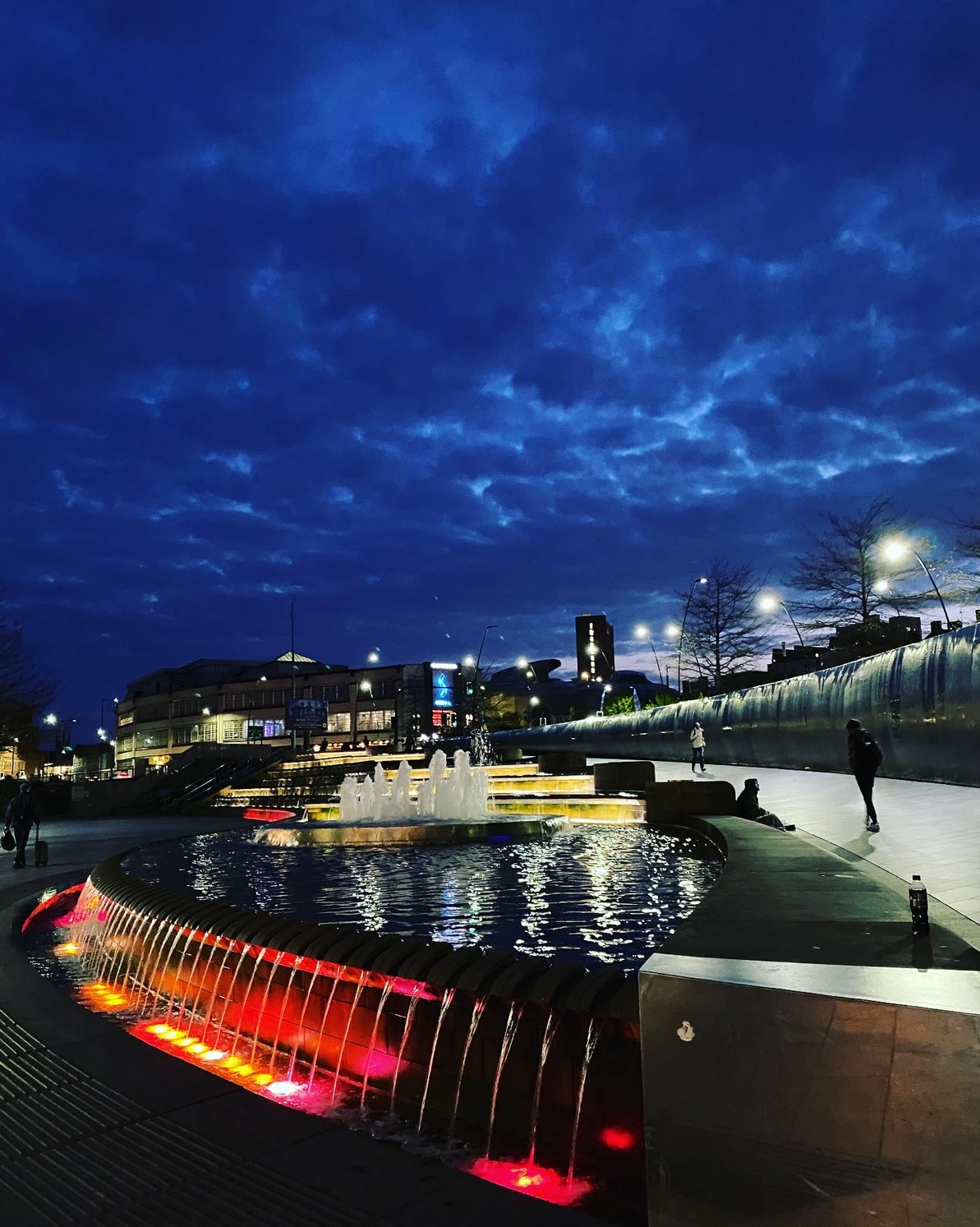
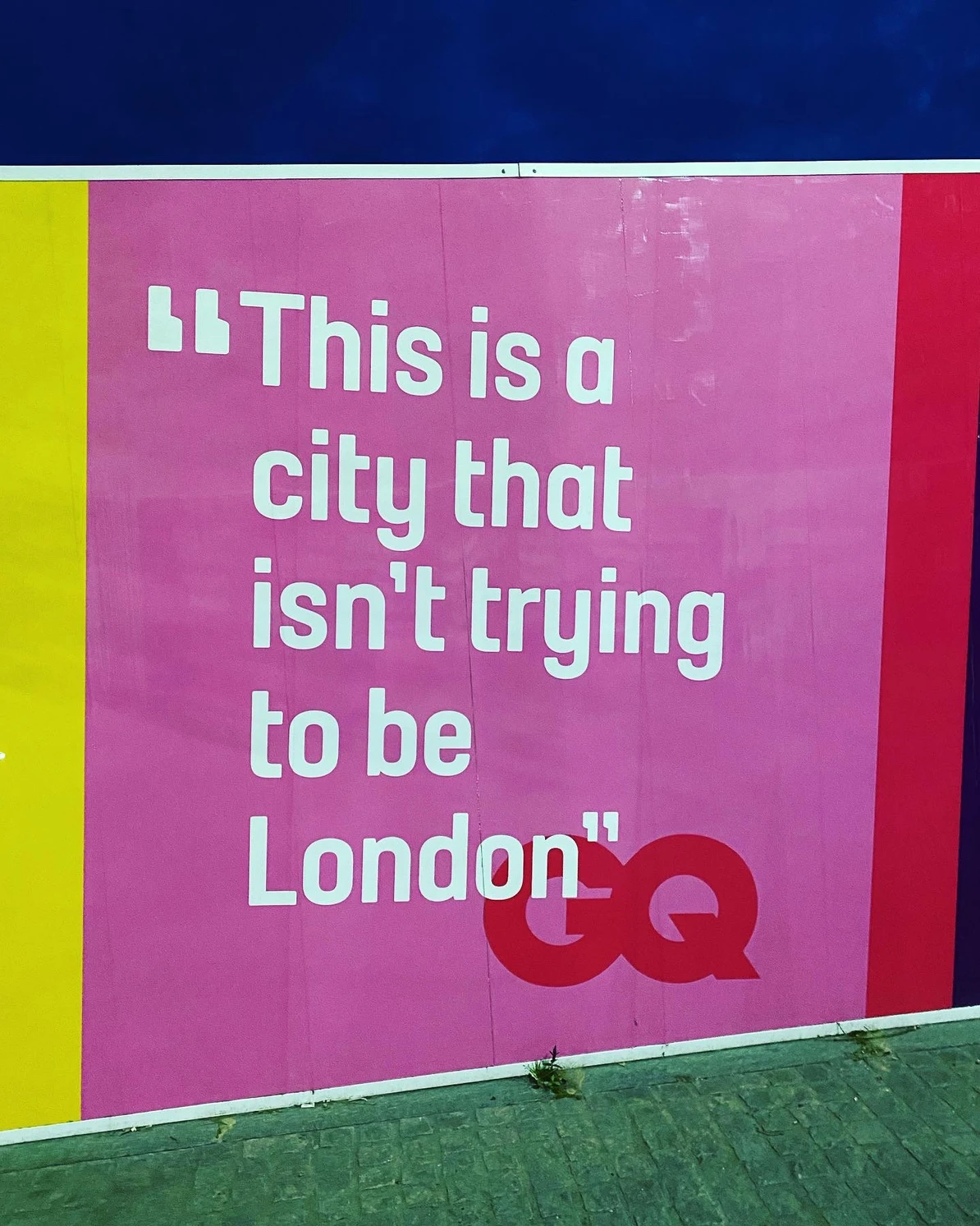
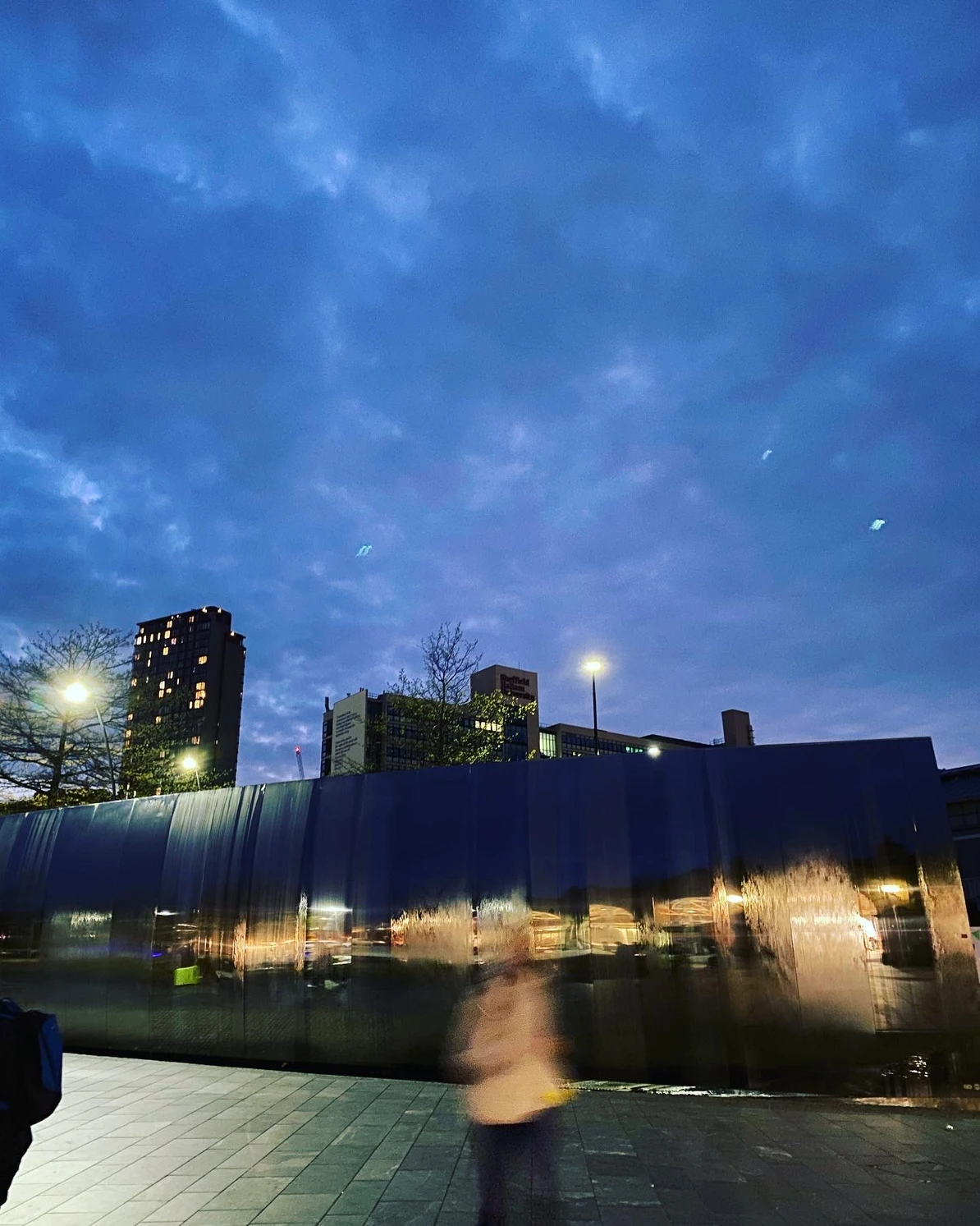
Everyone I came across was very friendly, and as the poster said – “This is a city that isn’t trying to be London”. No flat caps or whippets to be seen.
Industrial Tourism
There’s no substitute for seeing things in real life, especially absorber columns + reboilers and stuff.
So first thing on the morning of Day 1 – before the Conference started – we had the opportunity to join a tour round the new Translational Energy Research Centre (TERC). This unique test site facility on the outskirts of Sheffield was built to trial the scale-up of technologies that could help enable / optimise various energy transition pathways – including CO2 capture. Some of the things I learned about this facility are:
- It is really new (only started up summer 2021), and only some of the equipment is there so far. The carbon capture pilot plant there was relocated from a previous site; in fact this is its third home.
- A key area of research is on biomass-derived flue gas CO2 capture. This is partly because crops and trees absorb chemicals + metals etc from the soil they grow in, and the resulting biomass can have variable composition depending on the fields / areas they grow in. Reclaimed timber can also contain various impurities – and these impurities as they end up in the flue gas can affect the fouling / material selection / solvent effectiveness in the downstream capture plant.
- The capture plant has two main absorber columns to allow for different parallel / series experiments and to allow operational flexibility. The ‘default’ solvent is MEA, but other proprietary solvents are sometimes tested to measure the effectiveness of removing CO2 from different flue gases.
- There’s a 174kW hydrogen electrolyser on site, which was quoted as being powered by rooftop solar- although I’d be surprised if there’s this much solar PV capacity on the roof. The hydrogen produced is mainly to combine with the captured CO2 to make synthetic aviation fuel (SAF) at the site next door. Some of it is also used to test hydrogen blends in gas turbines.
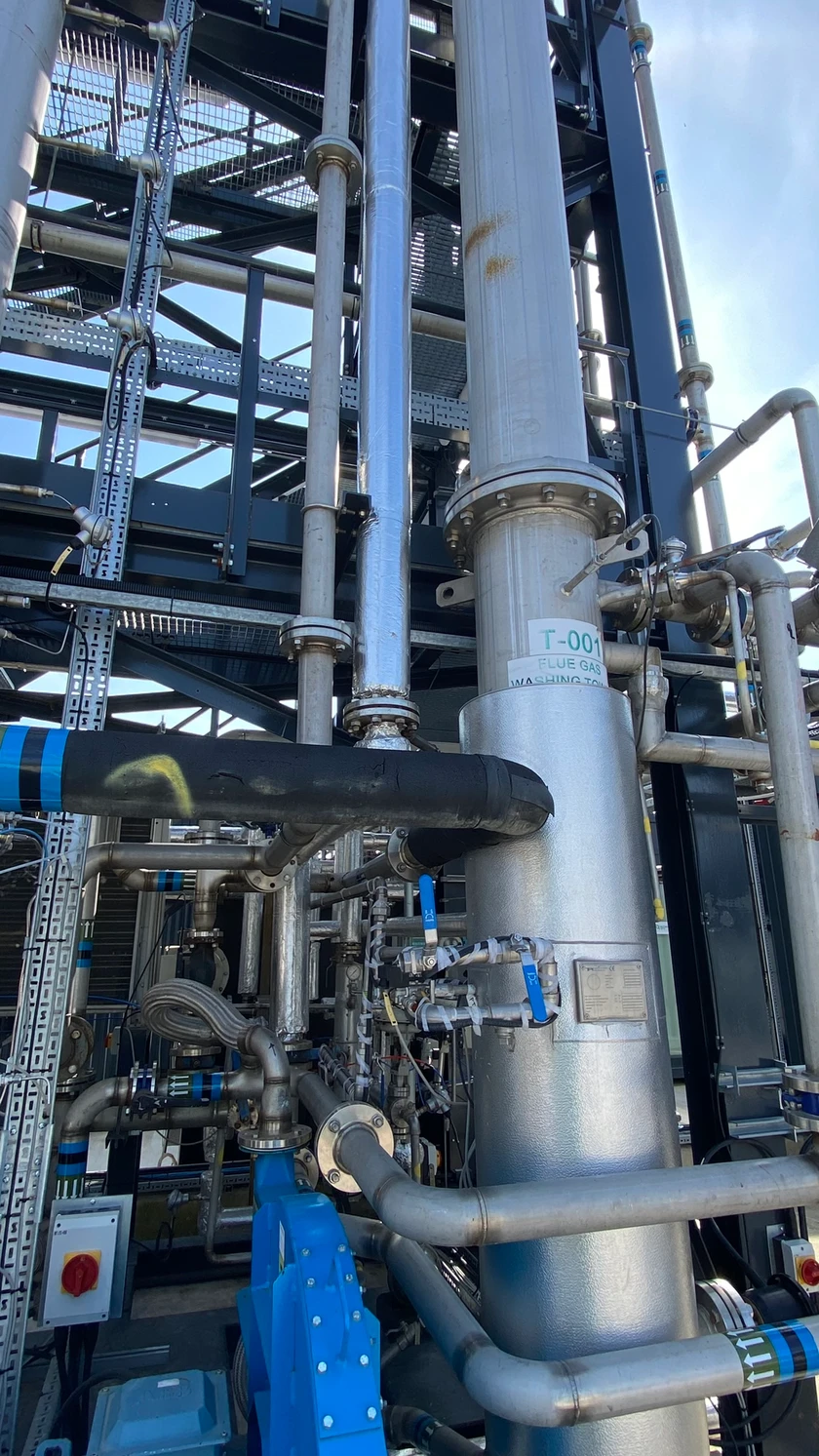
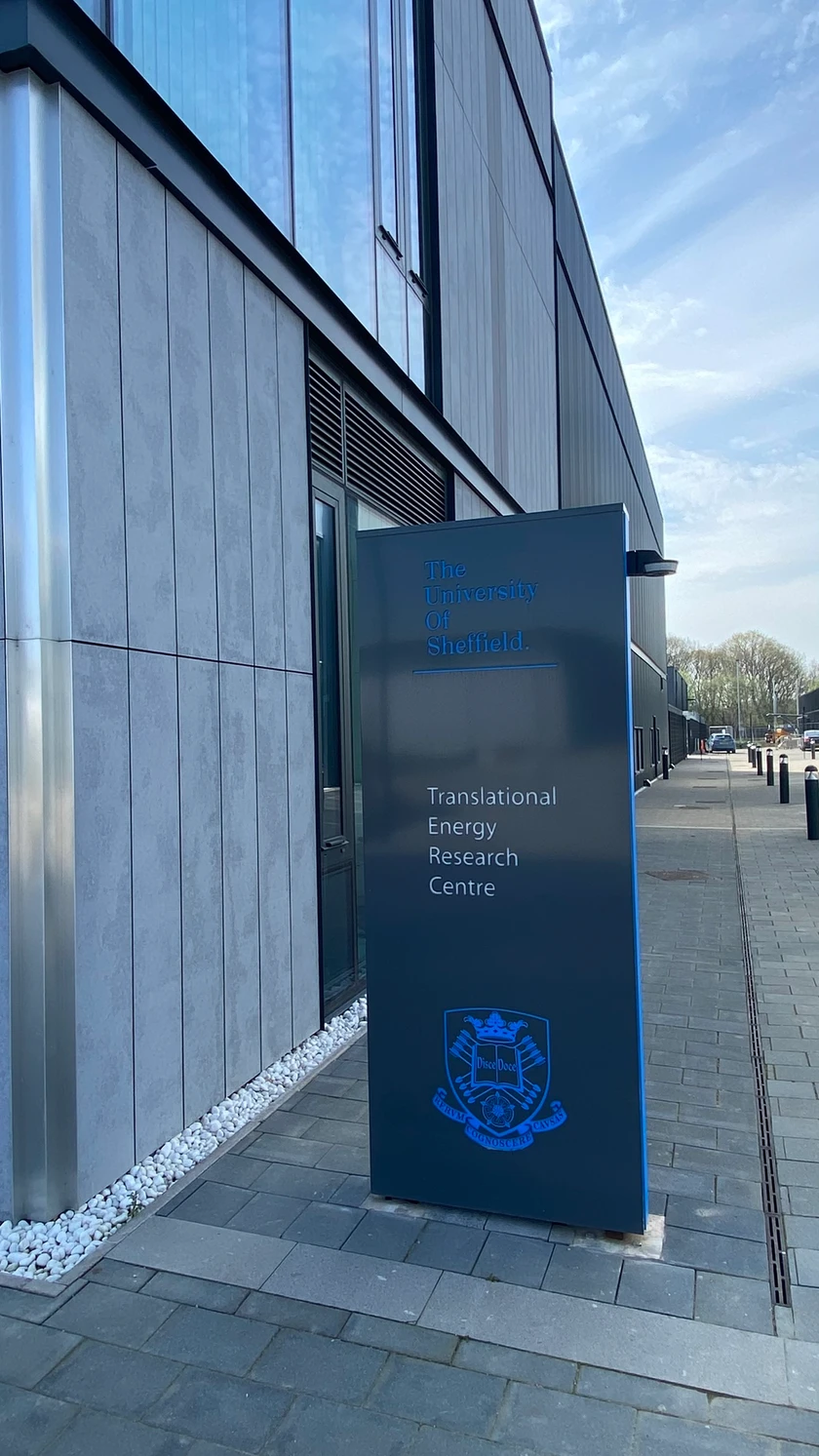
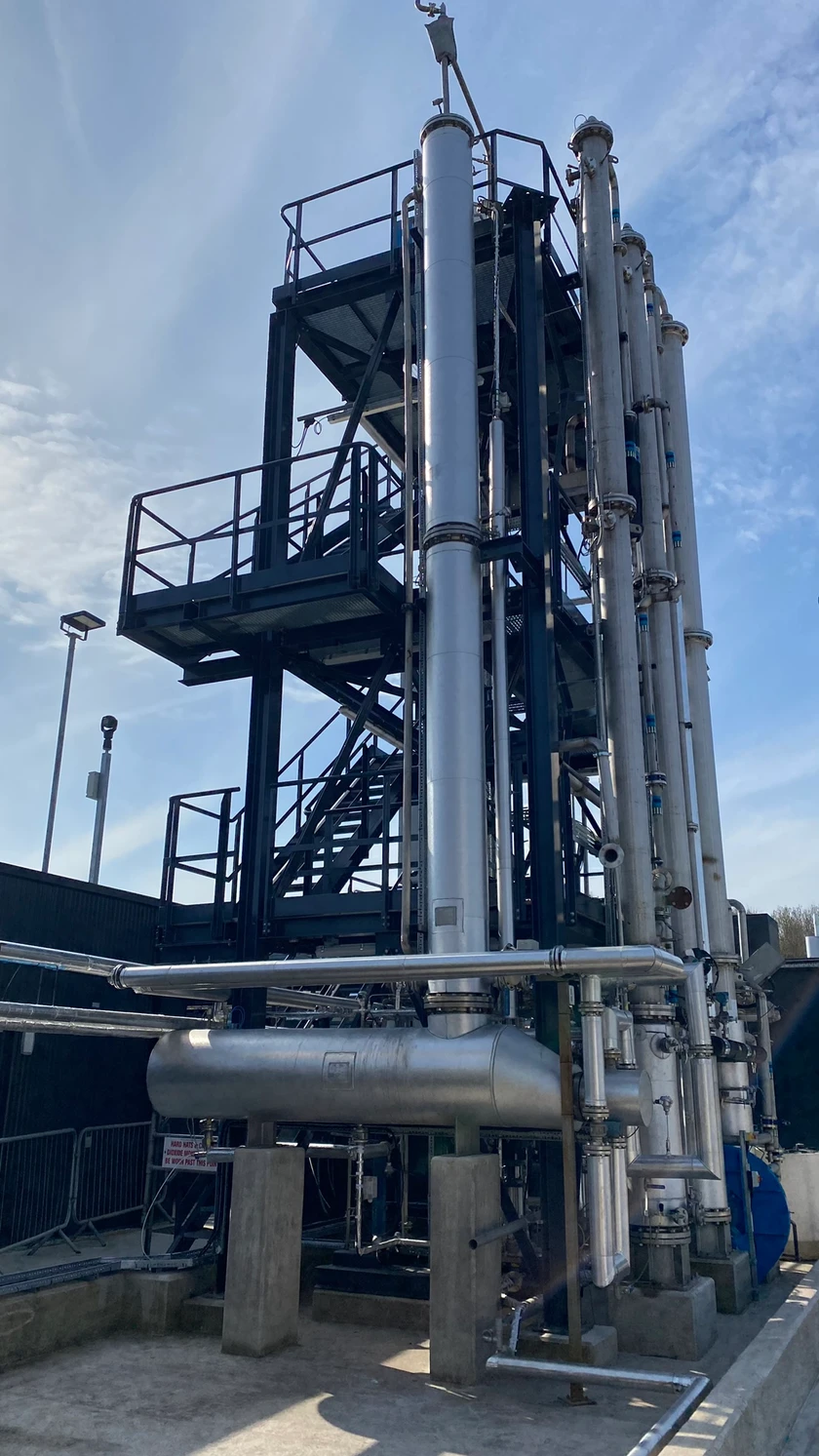
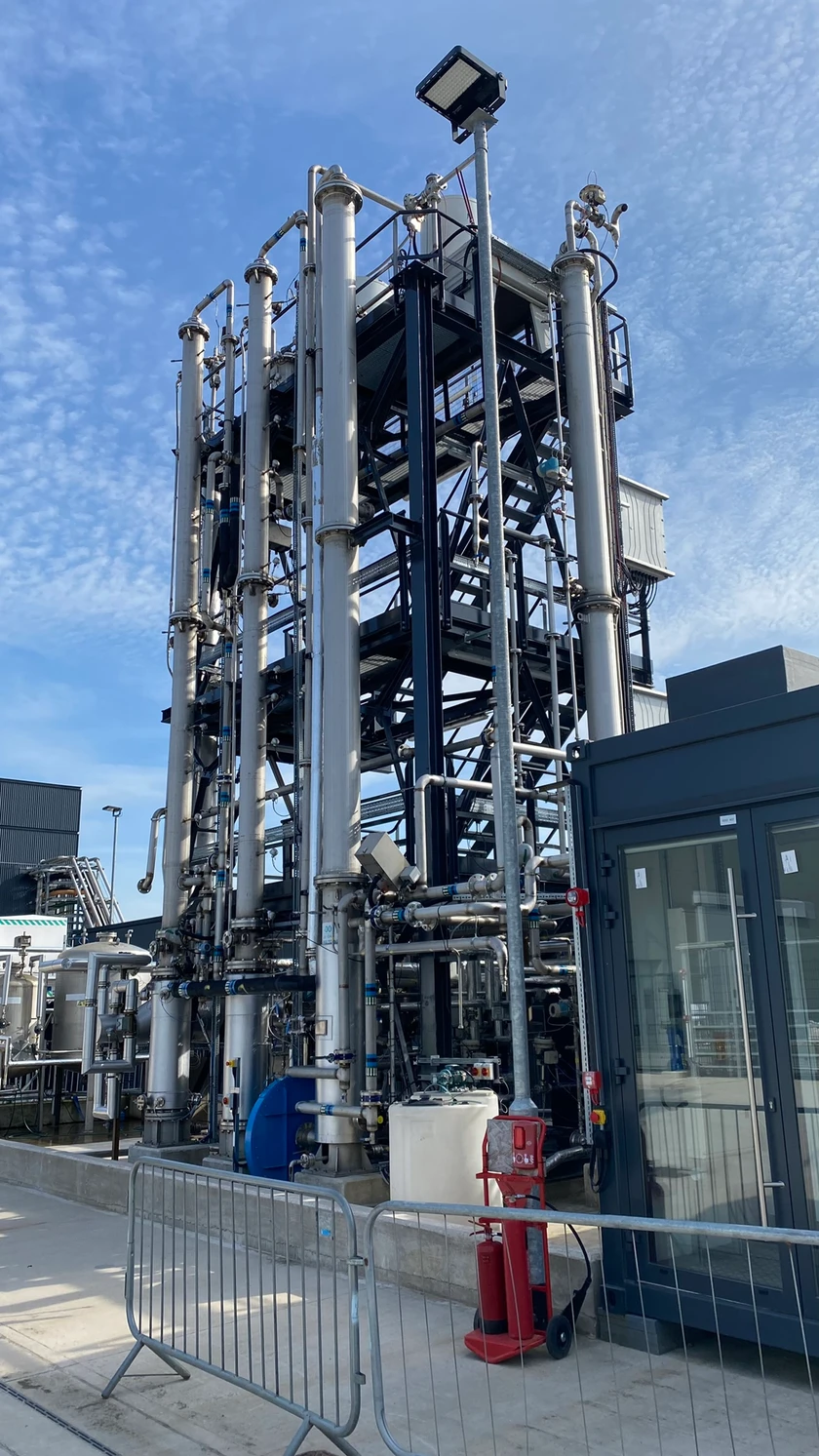
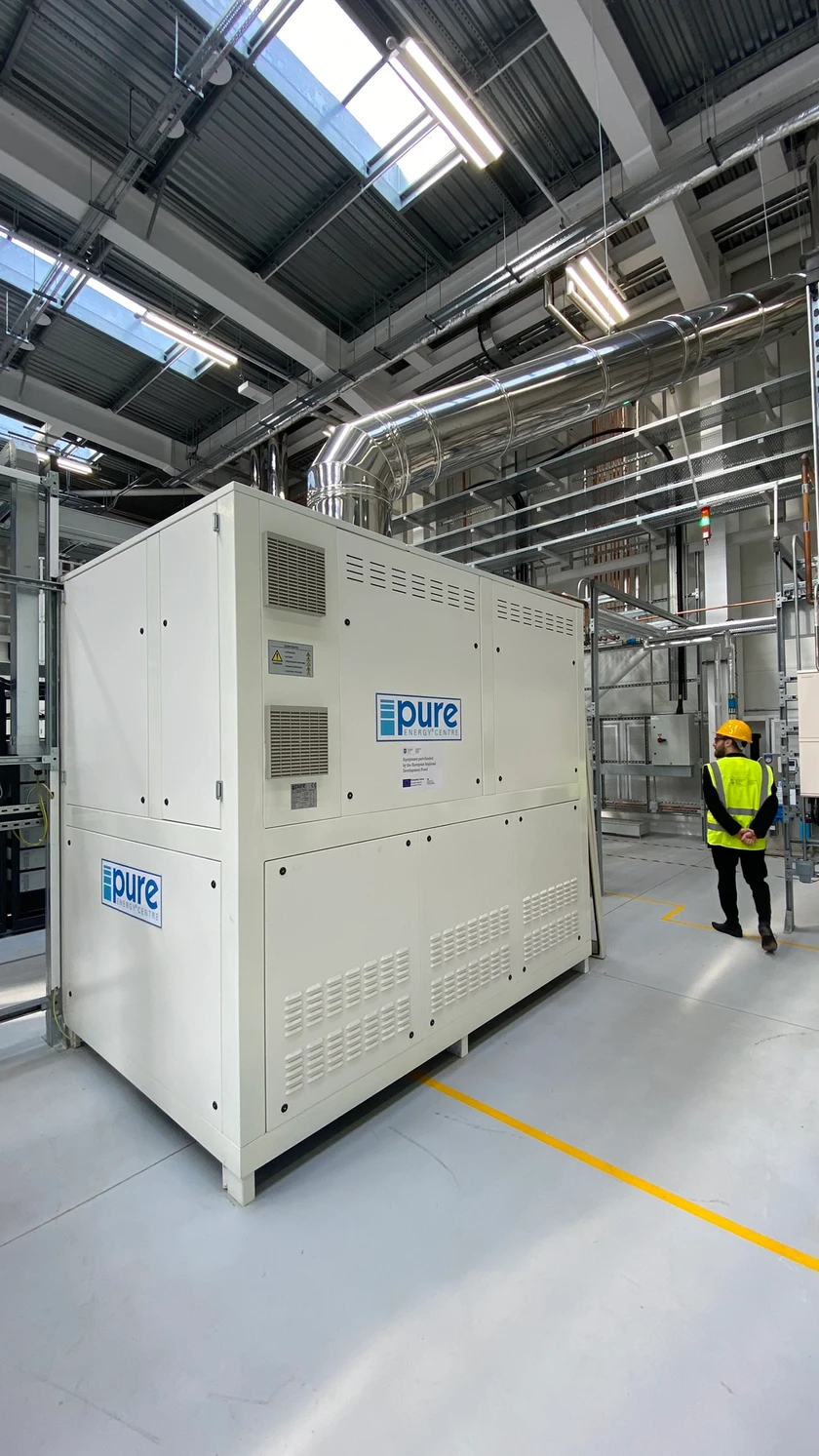

Conference & Takeaways
The conference sessions themselves went quickly with a host of excellent speakers from around the industry.
Despite carbon capture being a ~70-year old technology (at least in natural gas processing), there continues plenty of interesting, novel + diverse research.
Some of the main takeaway points that I made a note of included:
- After three previous generations / attempts at commercialising CCS (“the UK has talked about having first-mover advantage since 2005”), there is a consensus now that ‘it is happening’: The Track 1 clusters (Hynet and East Coast Cluster) are progressing at pace and are a year or so into FEED and community consultations etc – and Track 2 cluster selection process is kicking off in the next few months.
- There was limited talk about ‘big picture’ / system-wide impacts including lifecycle energy + carbon impacts (including total construction / solvent regeneration / supply chain & onward transport). I feel there is something missing in this important part of the discussion.
- Related to the point above – organisations involved in CCS projects still need help with getting a wholistic understanding of system impacts and scenarios. Some organisations talked of having access to data but limited insights.
- The CCS community – in contrast to some of the renewable technology communities – has a more collaborative than competitive feel. The UKCCSRC in particular went to great efforts to make this an inclusive, engaging and people-focused event. In fact to this end, it was revealed that the UKCCSRC is rebranding somewhat to change from ‘Research Centre’ to ‘Research Community network’.
- Despite this, no discussions seem to have been initiated on the future interconnection of cluster transport pipelines, which could potentially enable larger regional or even national CO2 networks. One example of this is the expected CO2 pipeline routes for Zero Carbon Humber and V Net Zero – which are expected to pass ~within a kilometre of each other at Immingham (south Humberside). It was discussed that common pipeline entry specifications would need to be agreed to connect pipelines together.
- Edinburgh Uni released a free self-paced online course “Climate Change: Carbon Capture & Storage” on the EdX platform, which is worth checking out for those wishing to learn some of the principles. It has had over 24,000 enrolments so far.
[I may add further takeaway points to the list above later on as I remember (or am reminded about) them].
There were some great posters on display – particularly from the Early Career Researcher (ECR) folks. We even got to present our own poster on the web-based screening tools we’ve been developing over the last year.
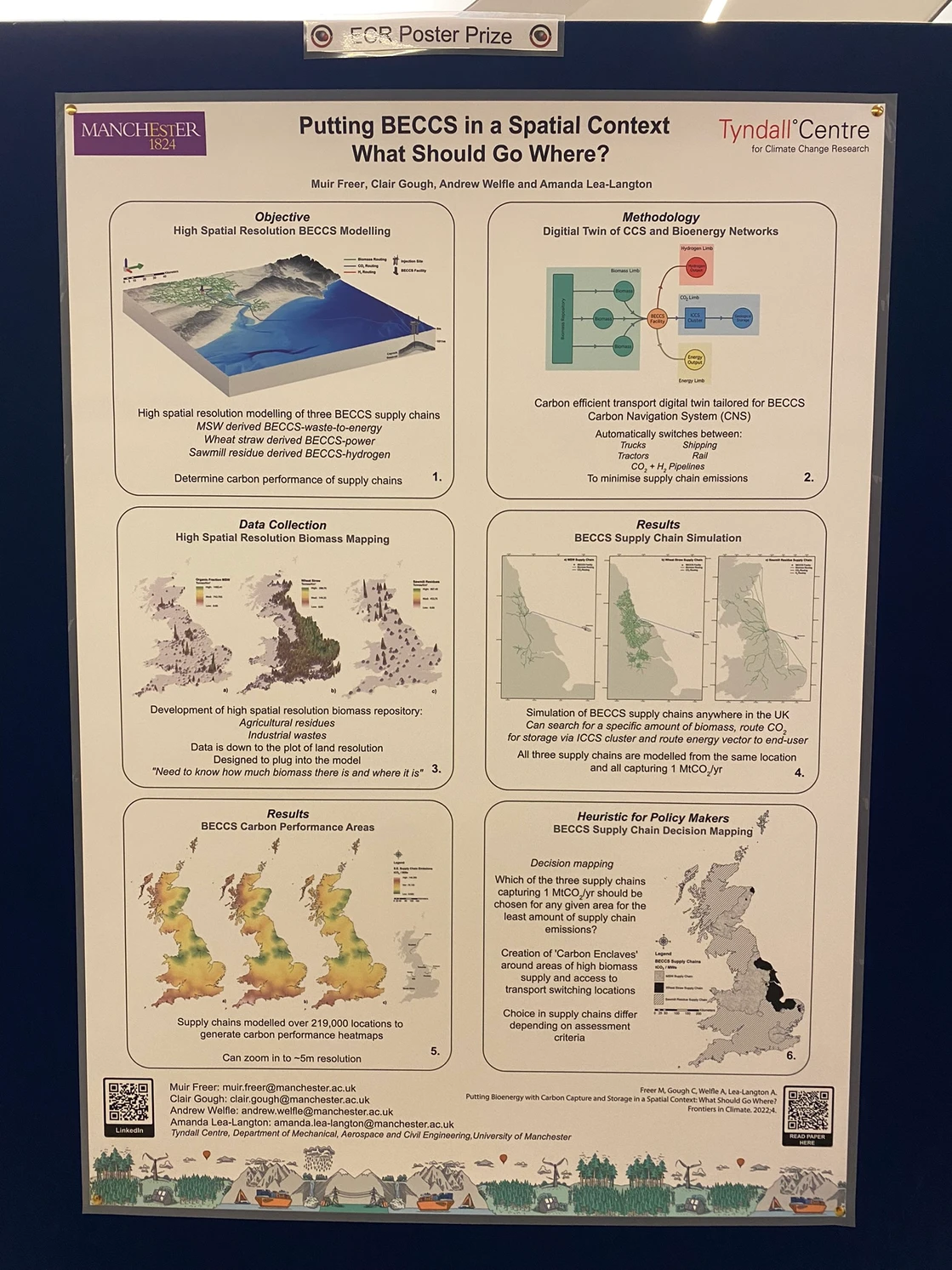
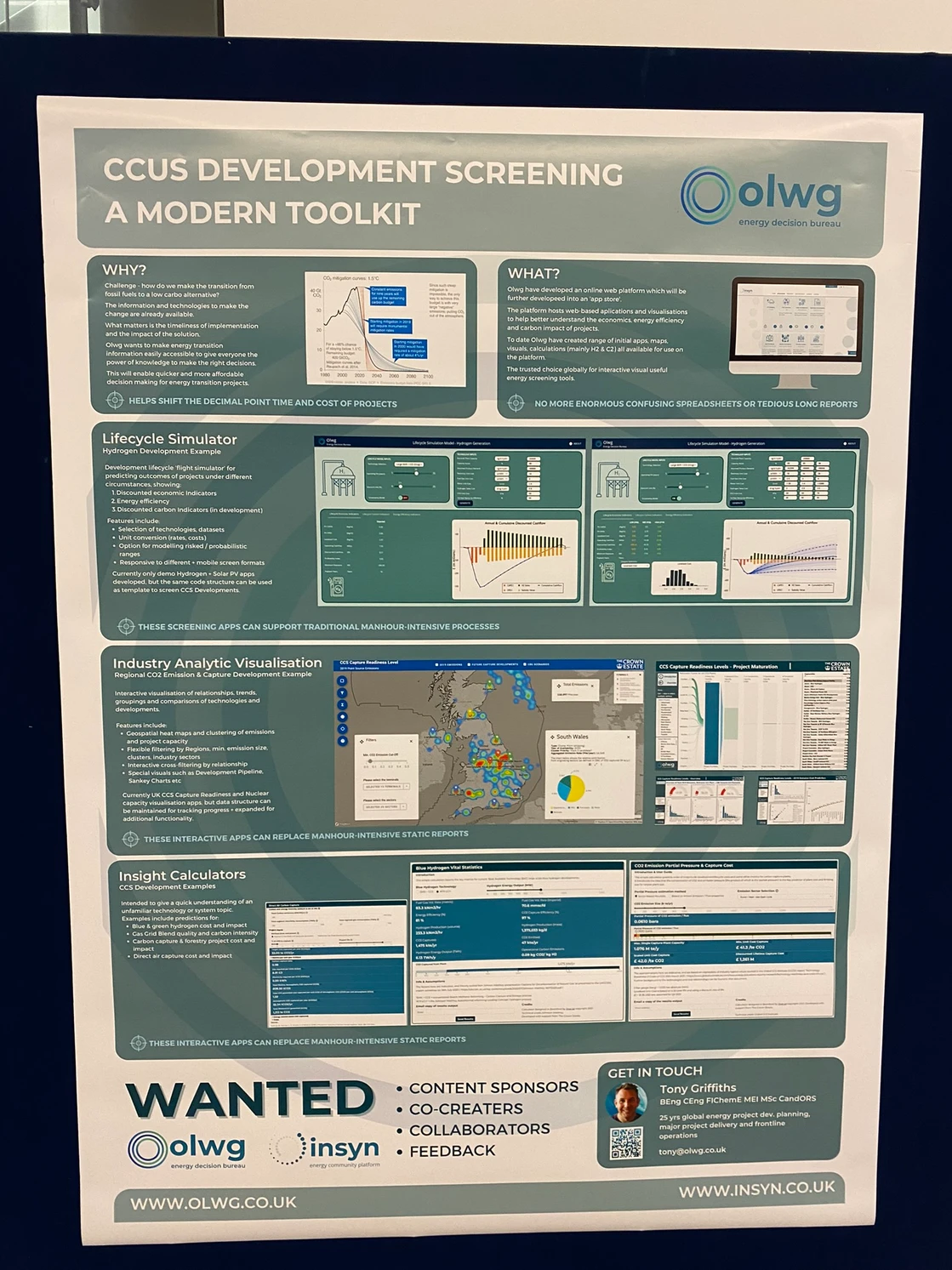
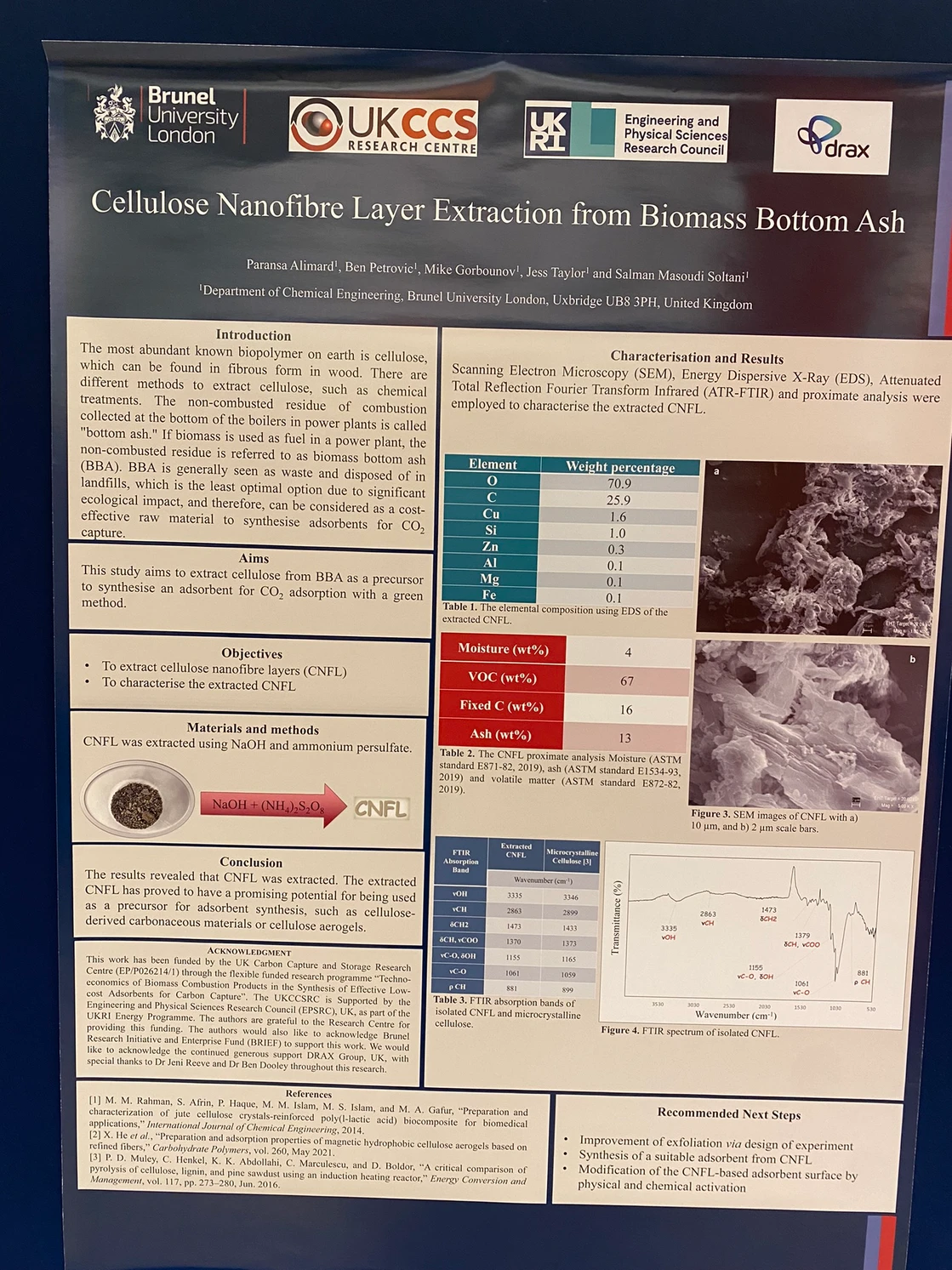
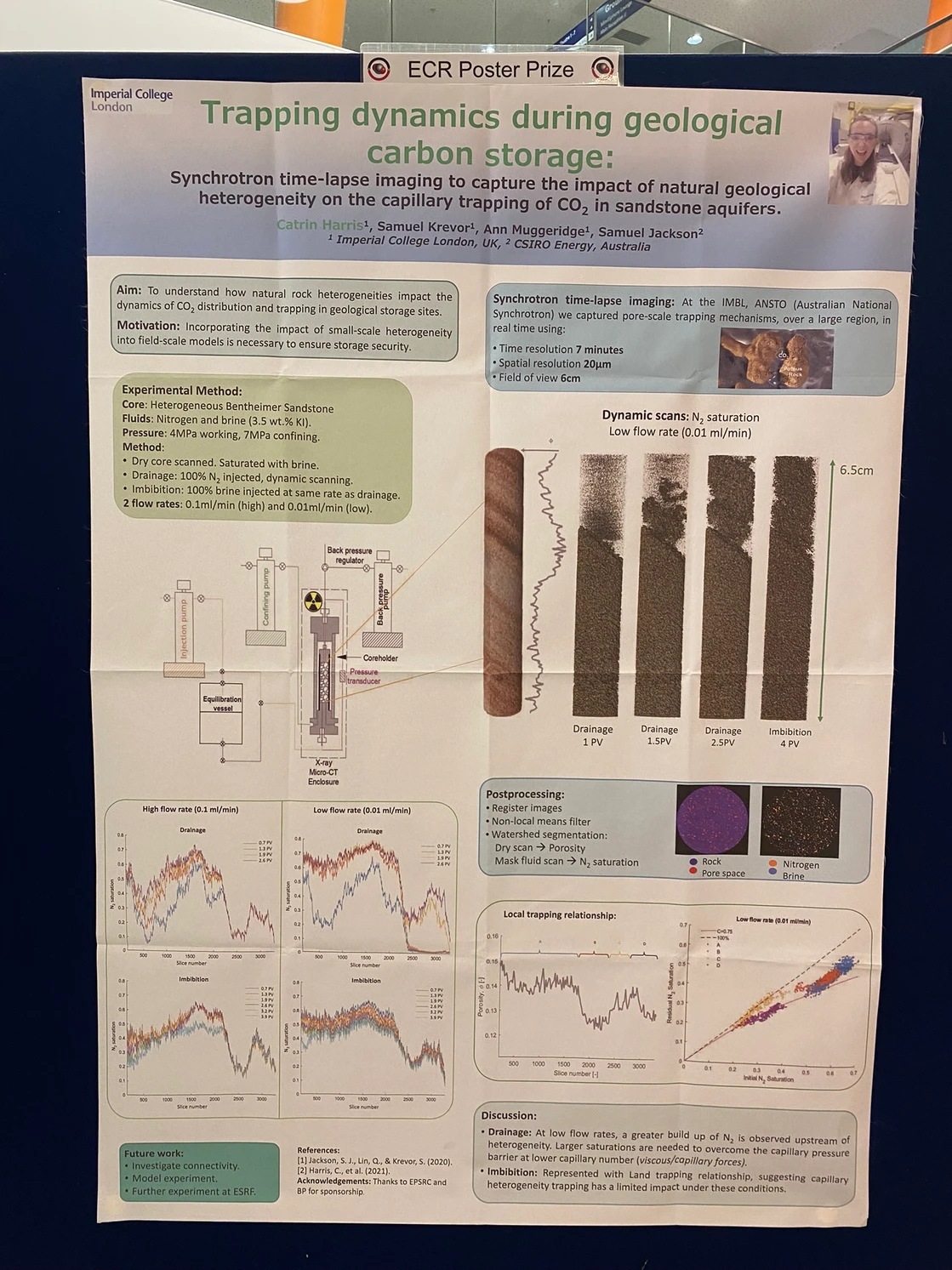
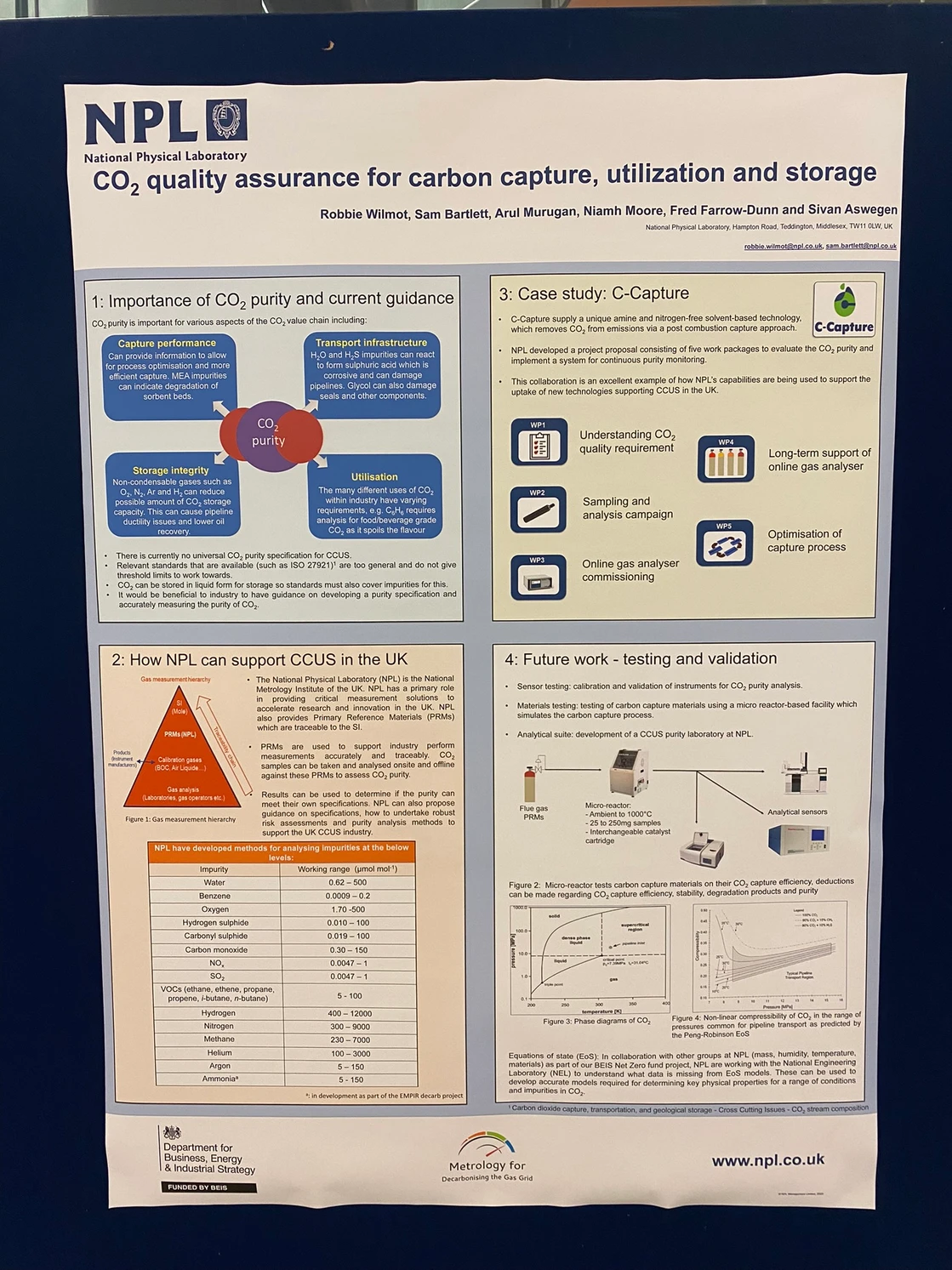

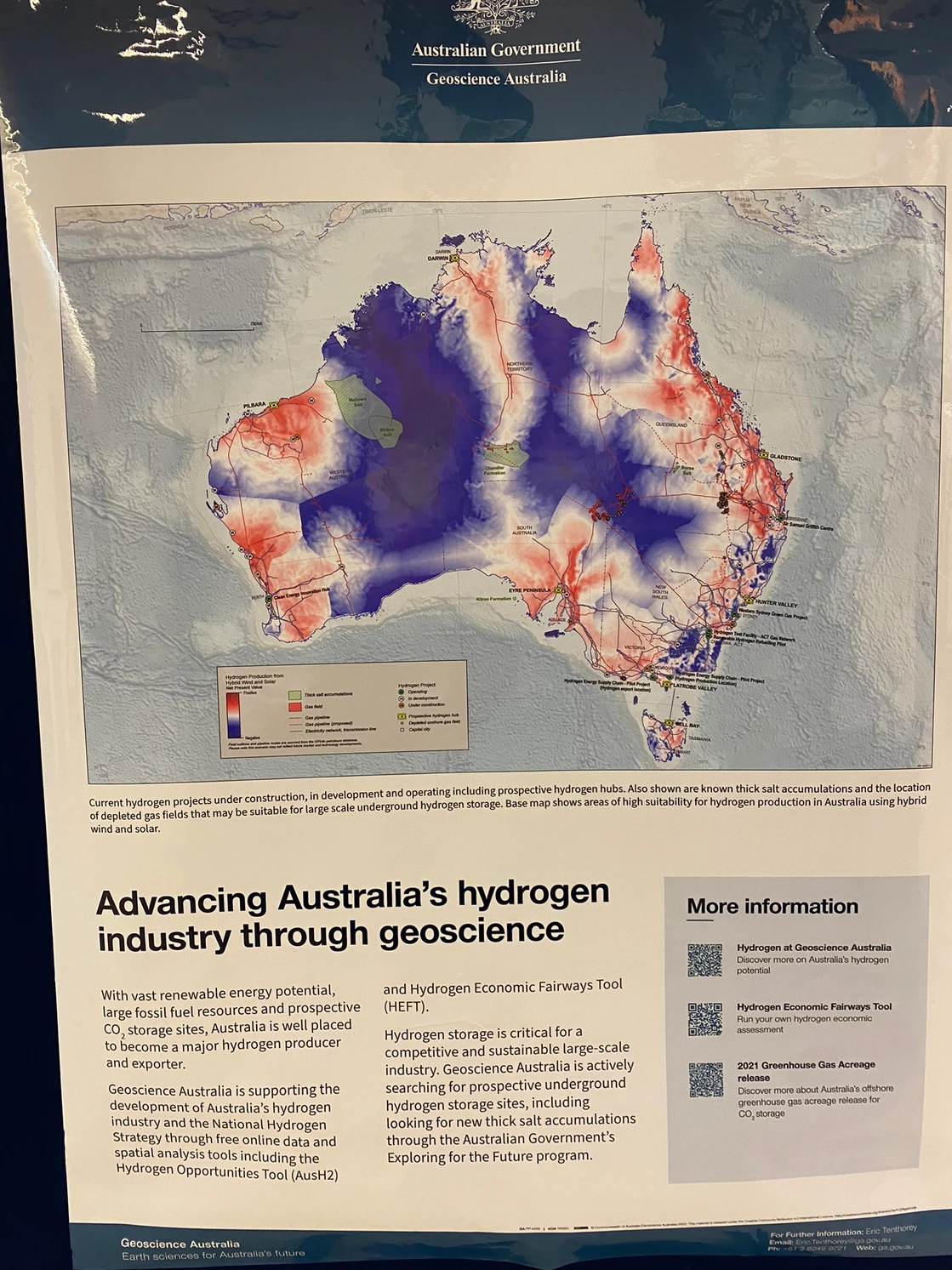
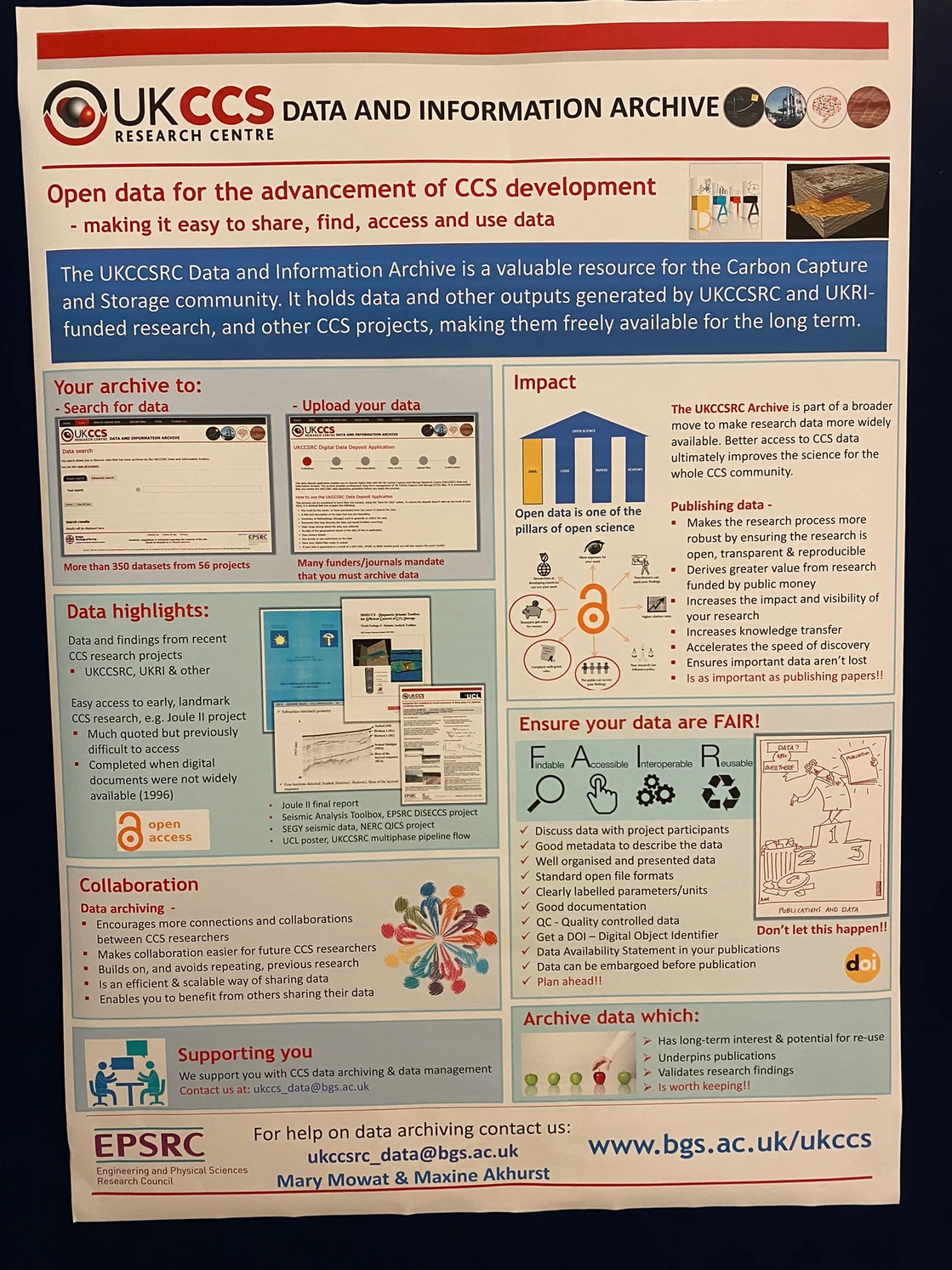
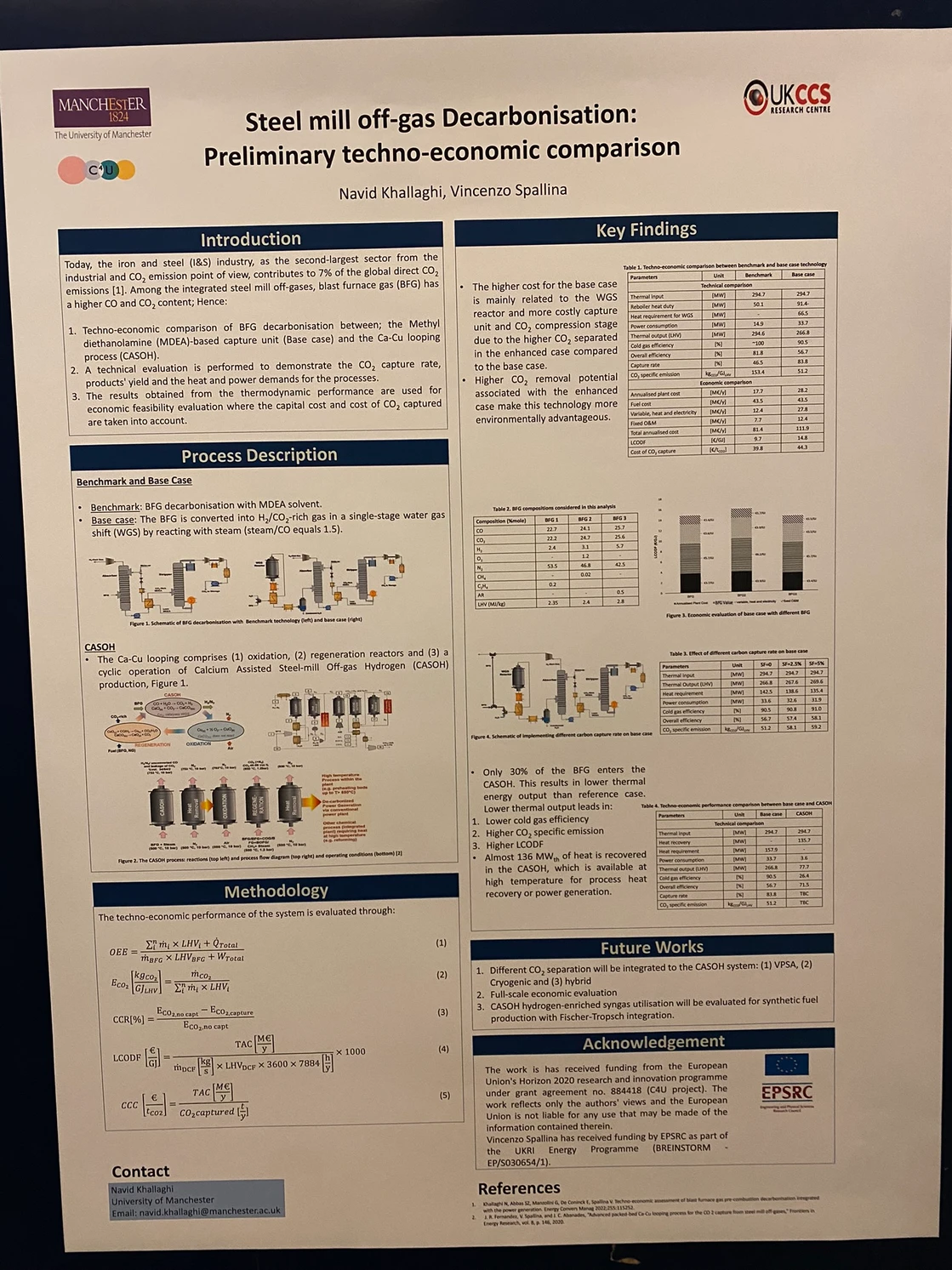
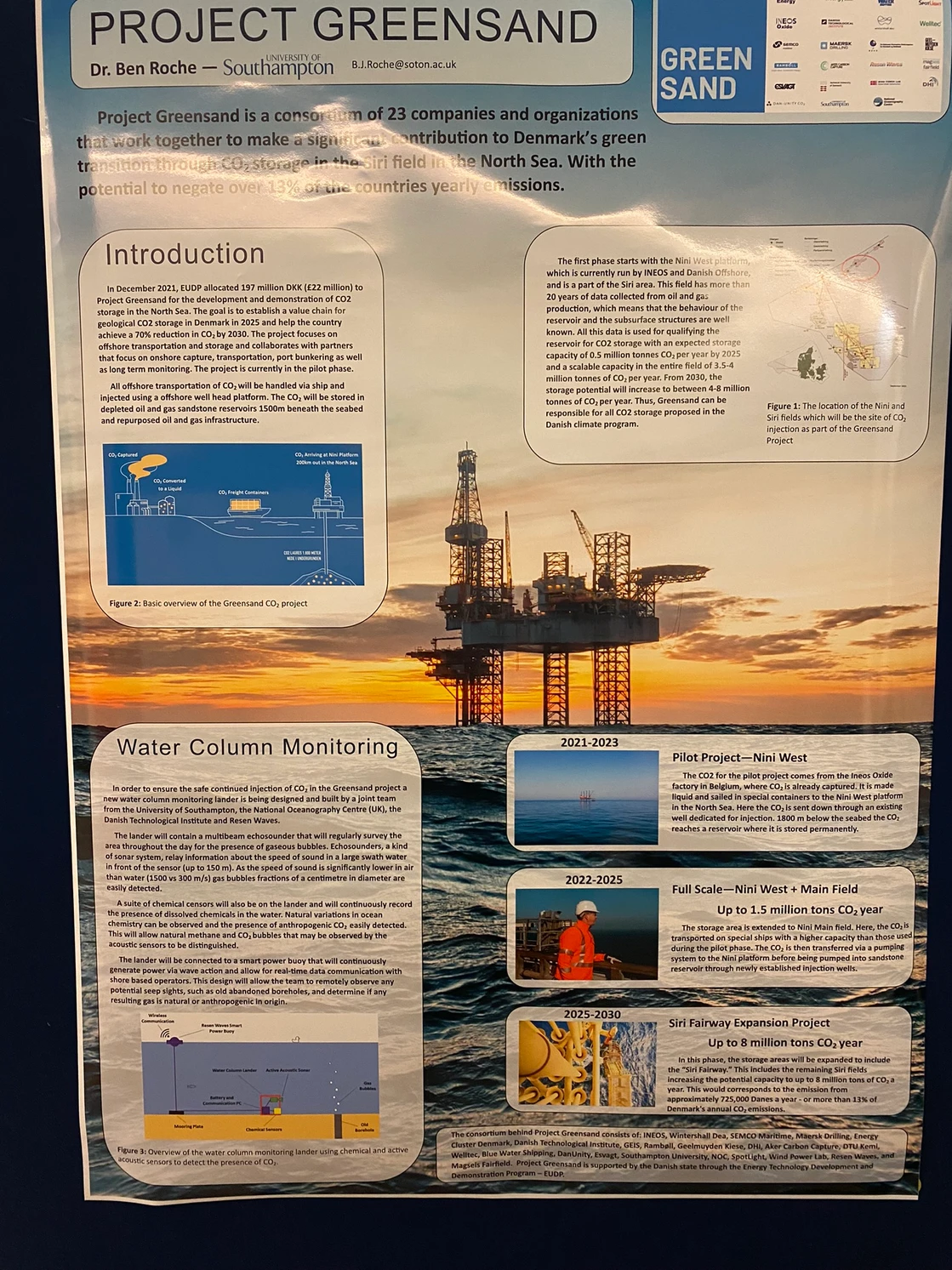
For anyone working in the CCS industry I can’t recommend the UKCCSRC events enough.
I can’t wait to go back to Sheffield, and it will definitely be on my ‘Brentford away day’ list – if they’re ever in the same league again 🙂

